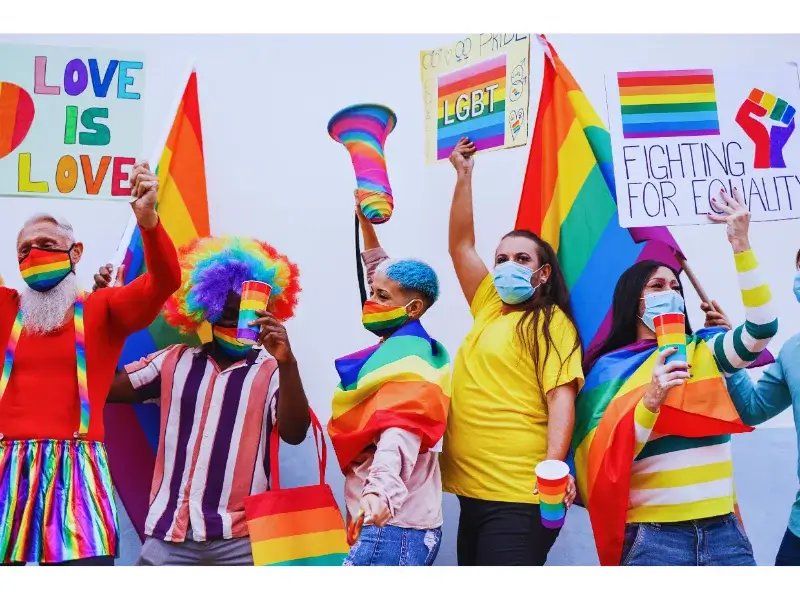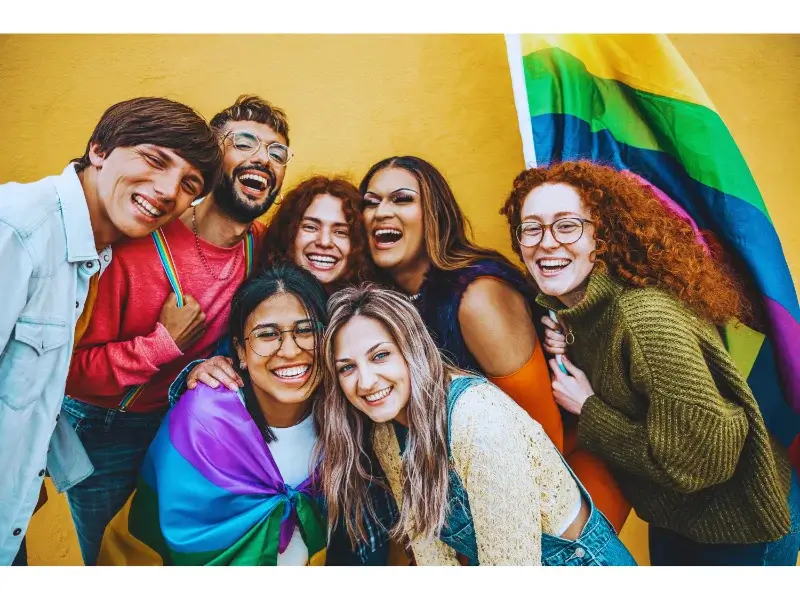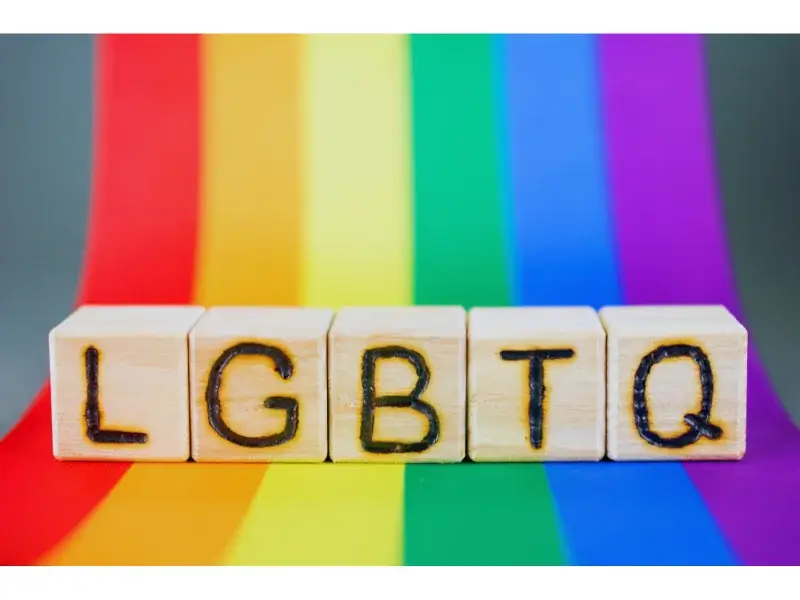The impact of stigma on LGBTQ individuals can be deeply hurtful and challenging. Many people face discrimination, isolation, and rejection, which can take a serious toll on their mental health.
Often, this stigma begins early in life, showing up as bullying in schools or a lack of acceptance from family. These experiences can lead to feelings of being unwanted and alone.
Getting to the root of where this stigma comes from and taking steps to change it can really make a difference. Creating safe spaces where LGBTQ individuals feel truly valued, supported, and accepted for who they are is so important.
Every action we take towards acceptance helps build a community that’s more inclusive and compassionate for everyone.
Why Is LGBTQ Stigma Harmful?
Stigma creates a hostile environment that can severely affect an individual’s self-esteem and overall well-being.
For LGBTQ individuals, this often means feeling like they have to hide their true selves, which can lead to constant stress and internal conflict.
Imagine living every day with the fear that being honest about who you are might lead to rejection or discrimination. This fear can be overwhelming, affecting every aspect of life from school and work to relationships and mental health.
When LGBTQ individuals feel pressured to conceal their identities, it can result in a deep sense of isolation and loneliness. They might avoid forming close relationships or participating in community activities due to the fear of being outed or judged.
Moreover, the impact of stigma isn’t just felt on an individual level. It ripples out, affecting families, workplaces, and communities.
Families might struggle to accept their LGBTQ members, leading to strained relationships and further emotional turmoil.
Workplaces that aren’t inclusive can limit the potential of LGBTQ employees, who may feel they can’t fully contribute or be themselves.
The Human Rights Campaign Foundation found that:
- 84% of LGBTQ+ workers are open about their sexual orientation or gender identity with at least one colleague, a significant increase from 54% in 2018’s “A Workplace Divided” report.
- 40% of LGBTQ+ employees hide their identity at work due to fear of stigma or violence.
- 35% of LGBTQ+ workers have overheard jokes or negative comments about gay, lesbian, or transgender people from their coworkers.
- 31% of LGBTQ+ workers report that their colleagues feel uneasy when discussing their sexual orientation.
- 45% of transgender and non-binary employees say their colleagues are uncomfortable when they talk about their gender identity.
- 54% of transgender and non-binary workers have experienced feelings of unhappiness or depression in the workplace.
In essence, stigma doesn’t just harm individuals. It undermines the fabric of society. Combating stigma is not just an LGBTQ issue. It’s a human issue. It’s about creating a world where everyone can live authentically, free from fear and prejudice.
How Can We Reduce Stigma?

Reducing stigma requires both societal and individual efforts, working hand-in-hand to create a more inclusive and accepting world.
On a societal level, implementing and enforcing policies that protect LGBTQ rights and promote equality is crucial. These policies help create a foundation of fairness and respect, ensuring that LGBTQ individuals are treated with the dignity they deserve.
On a personal level, our actions and attitudes can make a significant impact. Supporting LGBTQ friends and family members starts with listening. When someone trusts you enough to share their experiences, it’s important to listen without judgment and validate their feelings. Simple acts of kindness and support can go a long way in making LGBTQ individuals feel seen and valued.
For instance, using the correct pronouns and names shows respect and acknowledges someone’s identity. It may seem like a small gesture, but it can mean the world to someone who often feels misunderstood or marginalized.
How Does Acceptance Improve Mental Health?
Acceptance is a lifeline for improving mental health, especially for LGBTQ individuals who often face unique challenges and stressors.
Reduces Stress
- When LGBTQ individuals feel accepted, they experience less stress related to hiding their identity or fearing discrimination. This reduction in stress helps to create a more stable and supportive environment.
- Imagine not having to constantly worry about how others will react to your true self. This freedom from anxiety allows individuals to focus more on their personal growth and happiness.
Fosters a Sense of Belonging
- Feeling accepted by family, friends, and the community gives LGBTQ individuals a strong sense of belonging. This feeling is crucial for mental health, as it provides a foundation of support and connection.
- Belonging to a group that values and understands you helps combat feelings of isolation and loneliness. Knowing there are people who accept you unconditionally can be incredibly comforting.
Decreases Anxiety and Depression
- Acceptance can significantly reduce the rates of anxiety, depression, and other mental health issues among LGBTQ individuals. Studies have shown that LGBTQ individuals who are accepted by their families are less likely to experience severe mental health problems.
- For example, research from the Family Acceptance Project found that LGBTQ young adults who were accepted by their families were less likely to suffer from depression, use drugs, or attempt suicide.
Enhances Self-Esteem
- When people are accepted for who they are, their self-esteem naturally improves. They feel more confident and secure in their identity, which contributes to overall mental well-being.
- High self-esteem helps individuals navigate life’s challenges more effectively and maintain a positive outlook.
Promotes Open Communication
- Acceptance encourages open and honest communication. LGBTQ individuals are more likely to talk about their experiences and feelings when they know they won’t be judged or rejected.
- This open dialogue is essential for mental health, as it allows individuals to process their emotions, seek advice, and receive support.
Provides Emotional Support:
- Being accepted means having a network of people who are there to offer emotional support. This support can come in many forms, such as listening, providing comfort, or offering practical help.
- Knowing that someone cares and is willing to help can significantly reduce feelings of helplessness and despair.
Encourages Healthy Relationships
- Acceptance leads to healthier and more fulfilling relationships. When individuals feel accepted, they are more likely to form meaningful connections with others.
- These positive relationships provide a buffer against the negative effects of stress and can be a source of joy and strength.
What Resources Are Available?

There are plenty of resources out there to support LGBTQ individuals and help with mental health and overall well-being. These resources offer various services designed to provide the care and support needed. Here are some of the key ones:
Counseling and Therapy Services
Professional counseling and therapy are essential for addressing the mental health needs of LGBTQ individuals.
Centers like CNS Center of Arizona offer specialized services tailored to the unique experiences of the LGBTQ community.
Their team of mental health professionals provides compassionate and knowledgeable care, helping individuals navigate issues related to identity, stress, anxiety, and depression.
The CNS Center of Arizona provides a very safe and non-judgmental environment where LGBTQ individuals can receive the support they need to thrive.
The Trevor Project
The Trevor Project is a national organization that provides crisis intervention and suicide prevention services to LGBTQ youth.
They offer a 24/7 hotline, chat, and text services for those in need of immediate support. Their resources also include educational materials and advocacy efforts aimed at creating safer environments for LGBTQ youth.
PFLAG
PFLAG (Parents, Families, and Friends of Lesbians and Gays) is a national organization that provides support, education, and advocacy for LGBTQ individuals and their families. PFLAG chapters across the country offer support groups, educational resources, and community events to foster acceptance and understanding.
Online Platforms
Online platforms and forums can be a lifeline for LGBTQ individuals seeking support and community. Websites like TrevorSpace and Reddit’s LGBTQ+ community offer spaces where people can share their experiences, seek advice, and find solidarity with others who understand their journey. These online resources are especially valuable for those who may not have access to local support.
Final Thoughts
Talking about LGBTQ stigma and mental health isn’t just important—it’s essential for making real change.
When we keep these conversations going, we make sure the struggles of LGBTQ individuals are seen and addressed.
Advocacy for equality and acceptance has to happen everywhere: in our laws, in our schools, in our workplaces, and in our homes.
As our society grows and evolves, we must keep fighting against stigma and discrimination.
This means being there for LGBTQ individuals, creating safe and supportive environments, and celebrating the diversity that makes our communities strong. Every little step towards acceptance makes a huge difference in someone’s life.
Let’s commit to creating a world where everyone, regardless of their sexual orientation or gender identity, can live openly and authentically without fear of prejudice or discrimination.
Keep the conversation alive, take action, and be a force for change—because everyone deserves to be accepted for who they are.
If you’re part of the LGBTQ community or know someone who is struggling with the impact of stigma on their mental well-being, the CNS Center of Arizona is here to offer support. We provide comprehensive services that can help in understanding and addressing these challenges with compassion and expertise.






